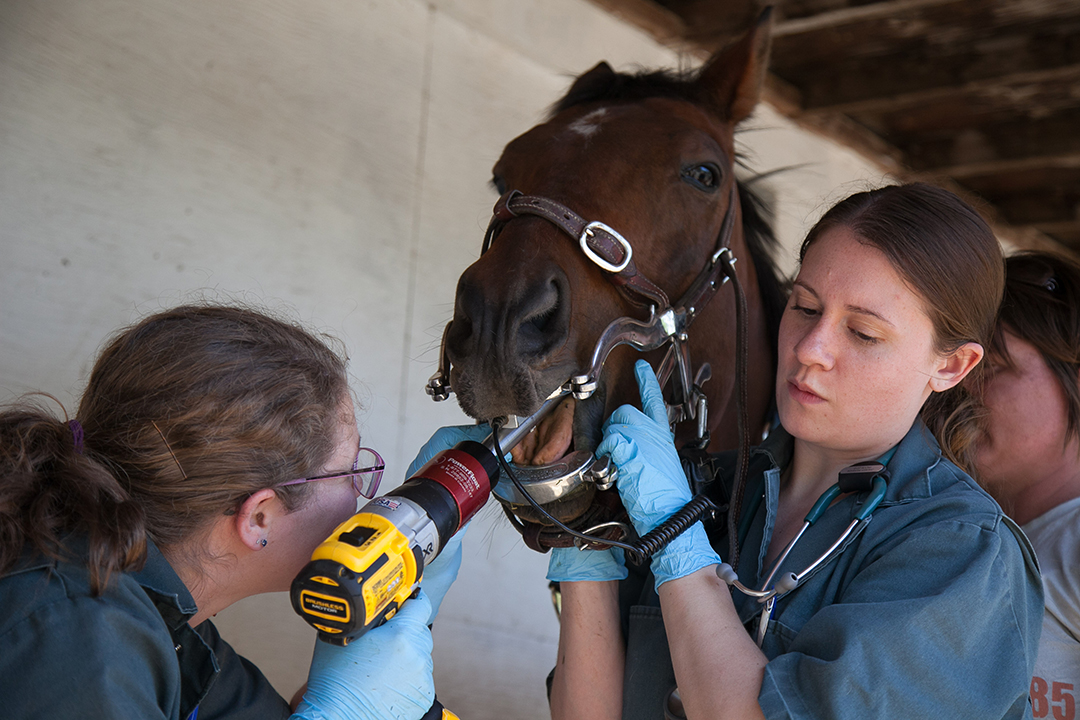For horse owners and enthusiasts, the health and well-being of their equine companions are of paramount importance. One crucial aspect of maintaining a horse’s health is ensuring regular equine dental exams. These exams play a significant role in the overall health and performance of horses. In this article, we will delve into the importance of dental exams, what they entail, and how they contribute to the well-being of your horse.

What is an Equine Dental Exam?
An equine dental exam is a comprehensive evaluation of a horse’s mouth, teeth, and gums. This examination is conducted by a qualified equine veterinarian or a specialized equine dentist. The aim is to identify any dental issues that may affect the horse’s ability to chew, digest food, or perform optimally.
Why Are Equine Dental Exams Important?
Equine dental exams are crucial for several reasons. Firstly, they help identify dental problems such as uneven wear, sharp enamel points, and gum disease. These issues can lead to discomfort, pain, and even behavioral changes in horses. Regular exams ensure early detection and treatment of such problems, preventing them from escalating into more serious conditions.
Signs Your Horse Needs a Dental Exam
Recognizing the signs that your horse may need a dental exam is essential. Some common indicators include difficulty eating, weight loss, excessive drooling, and head shaking. If you notice any of these signs, it is advisable to schedule a dental exam promptly.
The Process of an Equine Dental Exam
The equine dental exam process involves a thorough inspection of the horse’s mouth. The veterinarian or equine dentist will use specialized tools to examine the teeth, gums, and oral cavity. Sedation may be necessary to ensure the horse remains calm and comfortable during the exam.
Tools Used in Equine Dental Exams
Various tools are used during an equine dental exam, including dental speculums, mirrors, and floats. These tools help the veterinarian assess the condition of the teeth and make any necessary adjustments to ensure the horse’s comfort and health.
Common Dental Issues Found in Horses
Horses can experience a range of dental issues. Some common problems include sharp enamel points, hooks, ramps, and wave mouth. Each of these issues can impact the horse’s ability to chew properly and may require corrective procedures.
Preventive Measures for Equine Dental Health
Preventive care is key to maintaining your horse’s dental health. Regular equine dental exams are a vital component of this care. Additionally, providing a balanced diet and ensuring access to adequate forage can help prevent dental issues from arising.
How Often Should Horses Have Dental Exams?
The frequency of equine dental exams depends on several factors, including the horse’s age, breed, and overall health. Generally, young horses should be examined every six months, while adult horses may require annual exams. Older horses or those with known dental issues may need more frequent check-ups.
The Role of Nutrition in Equine Dental Health
Nutrition plays a significant role in maintaining your horse’s dental health. Providing a diet that includes appropriate levels of fiber, vitamins, and minerals can help prevent dental problems. Access to quality pasture and hay is also essential for promoting natural chewing and wear of the teeth.

The Benefits of Regular Equine Dental Care
Regular equine dental care offers numerous benefits for your horse. It helps maintain proper chewing function, improves digestion, and enhances overall well-being. Additionally, horses with healthy teeth are less likely to experience weight loss or behavioral issues related to dental discomfort.
Choosing the Right Equine Dentist
Selecting a qualified and experienced equine dentist is crucial for ensuring your horse receives the best dental care. Look for professionals with specialized training in equine dentistry and a proven track record of providing high-quality care.
FAQs About Equine Dental Exams
- How often should I schedule an equine dental exam? – It is recommended to schedule dental exams every six months for young horses and annually for adults.
- What are some signs that my horse needs a dental exam? – Signs include difficulty eating, weight loss, and excessive drooling.
- Can dental issues affect my horse’s performance? – Yes, dental problems can lead to discomfort and affect your horse’s ability to perform optimally.
For more detailed information on equine dental care, you can visit this external resource.
To learn more about horse teeth and their structure, you can also explore this dental chart for additional insights.
This article contains affiliate links. We may earn a commission at no extra cost to you.
